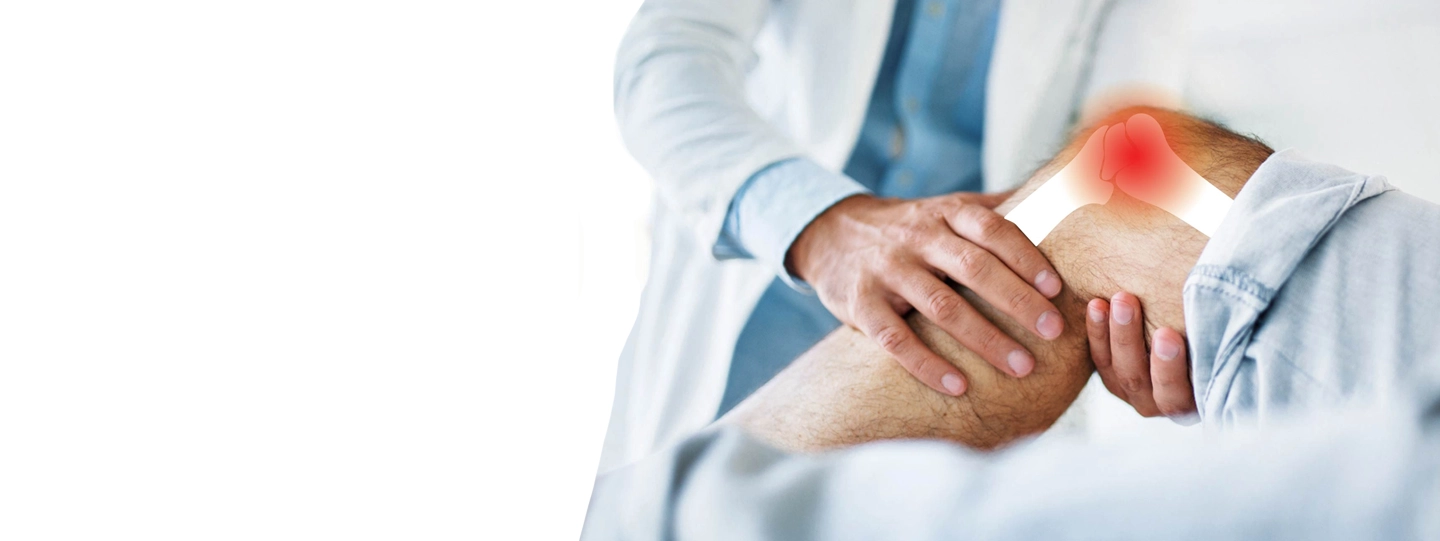

Arthritis is a condition that damages your joints. Joints are sites in the body where two bones join. Joints are responsible for body movements. Some joints naturally wear out with age. A lot of individuals develop arthritis after the normal wear and tear with the progression of life. Some kinds of arthritis develop as a result of joint injury. Certain medical issues can also cause arthritis. Arthritis may affect every joint but most commonly affects the following ones:
Your doctor will assist you in recognizing and managing symptoms such as pain and stiffness. Some persons with severe arthritis eventually require surgery to replace the afflicted joints.
Consult a doctor if you have significant joint pain that interferes with your regular activities or if you feel you can't move or utilize your joints normally.
The causes of arthritis vary according to the type:
Arthritis can occur at any age. Its knocking time varies on the type and the cause. In general, osteoarthritis affects individuals over the age of 50. Rheumatoid arthritis mainly affects individuals aged 30 to 60.
Other types have a more obvious reason. Arthritis typically begins when your body gets a precise trigger, like certain viral infections and post-traumatic arthritis. Such types of arthritis do not develop until the joints are wounded or the body has encountered a viral infection like COVID. Also, gout does not occur until the uric acid levels have been elevated for at least several months.
Consult an orthopedic specialist about your specific arthritis risk and when you should begin looking for indications or changes in your joints.
Following are the various types of arthritis:
| Type of Arthritis | Site, Symptoms, Causes, Progression |
| Ankylosing Spondylitis | A chronic inflammatory arthritis that mainly affects the spine, causing stiffness and reduced mobility. |
| Gout | A painful arthritis caused by uric acid crystal buildup in the joints, often affecting the big toe. |
| Juvenile Idiopathic Arthritis (JIA) | The most common type of arthritis in children, causing persistent joint swelling and pain. |
| Osteoarthritis | A degenerative joint disease where the protective cartilage wears down over time. |
| Psoriatic Arthritis | An inflammatory arthritis linked with psoriasis, affecting joints and skin. |
| Reactive Arthritis | Joint inflammation triggered by an infection elsewhere in the body. |
| Rheumatoid Arthritis (RA) | An autoimmune condition where the immune system attacks the joints, causing pain and swelling. |
| Septic Arthritis | A painful joint infection caused by bacteria, requiring urgent treatment. |
| Thumb Arthritis | Wear-and-tear arthritis affects the base of the thumb, leading to pain and reduced grip. |
The most common symptoms of arthritis are:
The type of arthritis you have and the joints it affects will determine where you feel symptoms. Flares, also known as flare-ups, are intermittent waves of symptoms caused by some kinds of arthritis. Others cause constant pain or stiffness in your joints, especially after physical activity.
Although there isn't a cure for arthritis, your doctor will assist you with therapies to control your symptoms. The type of arthritis you have, its cause, and the joints it affects will determine the therapies you require.
The following are the most effective therapies for arthritis:
Arthritis is amongst the most common medical conditions that many people encounter at some point in their lives. However, you shouldn't have to endure suffering simply because many people have it. Consult an orthopedic specialist about managing the symptoms of arthritis. They will assist you in figuring out how to manage joint discomfort and stiffness in a personalized manner. This can help to get more time engaging in the things you like.
When you have arthritis, you need experts by your side. At Surya Hospital, we’ll create an individualized treatment plan for you. Get expert care from top orthopedic specialists in Mumbai. Book your consultation now!
Q1: Do specific weather conditions exacerbate arthritis?
A: Certain weather conditions might make arthritis worse for certain people. Two typical causes of joint discomfort are humidity and cold.
Q2: How quickly can arthritic pain be relieved?
A: There is no one solution that works for everyone since every person's body reacts differently to various therapies. Your doctor will assist you in choosing a mix of therapies that will reduce the pain associated with your arthritis. As soon as your arthritis symptoms start to worsen, you can go for over-the-counter or prescription medication. To prevent pain flare-ups, some patients take arthritis medication on a regular basis.
Q3: When should I visit an orthopedic specialist for joint pain relief?
A: Visit an orthopedic specialist if you experience severe joint pain lasting for more than a week, stiffness, or worsening or more frequent flare-ups of these symptoms.
